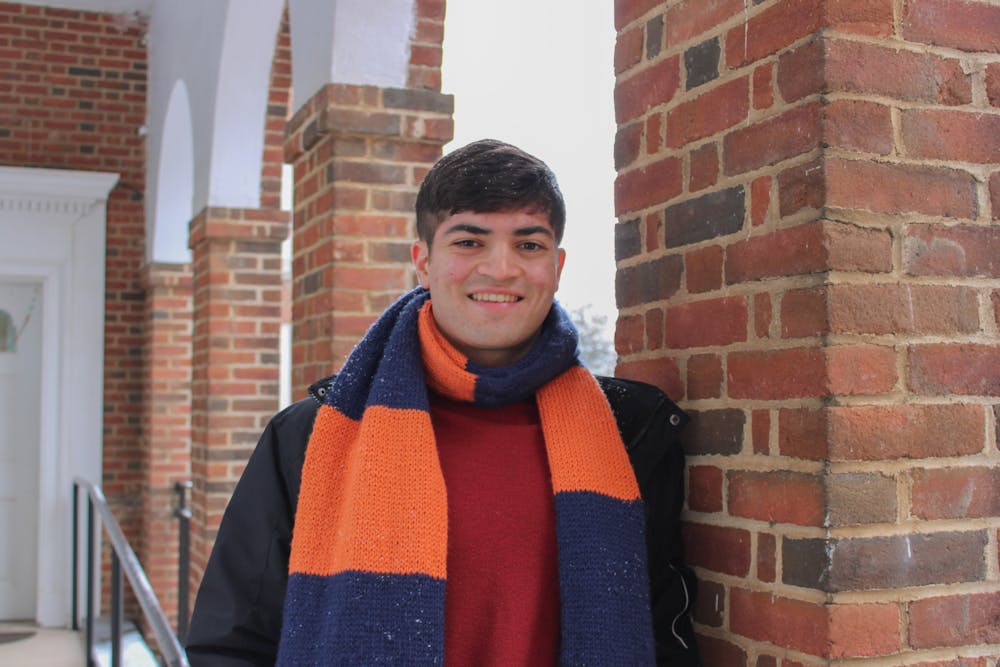About one million miles away from Earth, the $10 billion James Webb Space Telescope orbits the sun, capturing stunning details of space that have gone previously undetected. Any opportunity to use this infrared telescope, a world class instrument, is an astronomer’s dream. That dream came true for third-year College student Samuel Crowe, who is assumed to be the first undergraduate in the world to have their research proposal to use the Webb telescope accepted. Crowe is a committed scholar whose curiosity is not only his greatest asset, but also his strongest motivator.
An Astronomy/Physics and History double major, Crowe submitted his research proposal on star formation in the Galactic Center of the Milky Way in January 2023 to the Space Telescope Science Institute, a mission operation center for NASA. While the STSI does not track the degree level of people who submit proposals, only 10 percent of accepted proposals are led by student Principal Investigators. Crowe’s mentors believe that he is likely the first undergraduate to ever be granted this coveted distinction.
Crowe credited his mentor Jonathan Tan, a research professor in the University’s Department of Astronomy, as a motivating force during the application process. In January of 2023, Tan suggested that Crowe submit a proposal for the Webb General Observer, a competitive program that grants astronomers allotted time with the telescope to conduct research.
“[The idea sounded] totally outlandish,” Crowe said. “Because it was inconceivable to me honestly. But I flew back home to U.Va., the semester started and then I was still toying around with this idea of the proposal in my head.”
This initial spark prompted a rigorous research proposal process that compelled Crowe to assess his passions and motivations.
“It was a tough process, even if it was a short one, to write the proposal,” Crowe said. “I had to do a lot of literature reviews. It was really making an argument, saying what science we want to do with this data that we're proposing to get. Why is it justified? What is the past analysis that we've done? How does that support what we want to do? And how do we want to do it?”
Now in his research program with the Webb General Observer, Crowe works with images generated by the Webb telescope, which are colored and adjusted to be perceived by the human eye. These images allow him to visualize the Galactic Center, an opportunity that wouldn’t have been available to him outside of the STSI program. It was this imaging opportunity that drew him to the program in the first place.
“[The Galactic Center] is a region with massive star formation,” Crowe said. “Eight times the mass of the Sun, [these stars] are very hard to study and characterize. [The STSI] program is really one of only a few that has studied massive star-forming regions anywhere, let alone in the Galactic Center.”
When asked about how he thinks instruments like the James Webb Space Telescope affect the average citizen, Crowe passionately expressed how space exploration has a direct impact on the human experience.
“It’s very amazing that we can see the universe and see what it has to offer,” Crowe said. “It's one of the reasons I love astronomy so much — it keeps our wonder alive. It keeps us questioning what is going on out there. What is actually going on in the universe? Can we understand it? And how does it tell us, coming back to Earth and the Solar System, about what's going on around us?”
Crowe emphasized that his exceptional accomplishment wouldn’t have been possible without the support of his faculty advisors and his parents. Crowe credited his mother as being the biggest supporter of his academic endeavors.
“[My mother] raised me with the idea of, if you ever get that feeling that you can't do something, or that you don't have the skill set to do something that's too much for you, that just means that you need to do it all the more because you need to prove yourself wrong,” Crowe said.
He expressed how this sentiment is applicable to any University student, in any discipline, trying to do something academically courageous. He wants other students to know that their age does not have to stifle their curiosity or hold them back from their dreams.
“I think that, as young people, we are full of a lot of confidence, but also full of a lot of self doubt,” Crowe said. “It's a matter of realizing that there is nothing that someone who's more experienced [than] us can do that we can't do. We really can do a lot of things that people who are further along in their careers can do if we just apply ourselves to it — and start doing it. Oftentimes, the hardest first step is just to start.”
CORRECTION: A previous version of this article incorrectly stated that Jonathan Tan suggested that Crowe submit a proposal for the Webb General Observer in January of 2022. The actual date that Tan suggested Crowe should submit a proposal was in January of 2023, and the article has been updated to reflect this change.







